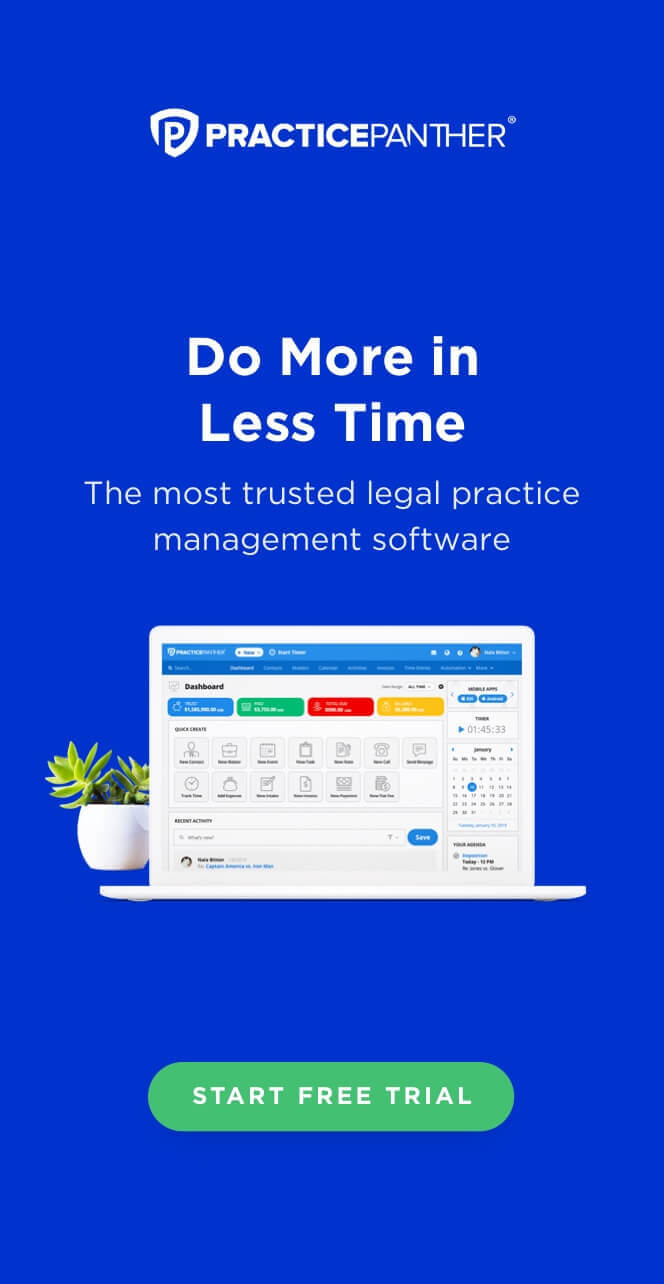Practicing law can feel overwhelming at times. When there are many things happening at once, it can be easy to only focus on what the issues are. However, finding solutions — instead of having tunnel vision on the problems — can lead to quick results and happier clients.
A solutions-focused lawyer is a lawyer who prioritizes finding practical and effective solutions to legal issues — instead of focusing on the potential obstacles. They understand the client’s underlying interests and goals, working collaboratively to achieve the desired outcomes and manage risk.
Benefits of Being Solutions Oriented
Adopting a solutions-oriented mindset can offer plenty of benefits, not just for yourself but for clients.
Enhanced Problem-Solving Abilities
By focusing on solutions, rather than problems, you will learn to find innovative solutions and effective strategies to manage risk and overcome obstacles.
Increased Client Satisfaction
Solutions-oriented lawyers focus on finding solutions to legal problems with the client’s interests and preferred outcomes in mind. They work collaboratively with the client, fostering open communication and an enhanced client experience.
Improved Teamwork and Collaboration
Solutions-focused lawyers work collaboratively with clients and other legal professionals, including experts, consultants, and opposing counsel, to find favorable solutions. They understand that the client is at the center of the desired outcome, and all strategies and decisions must be focused on achieving that outcome while minimizing risks.
Enhanced Professional Reputation
Having a reputation as a solutions-focused lawyer, especially if your competitors aren’t, can significantly improve your reputation. Clients and colleagues value lawyers who offer creative problem-solving to deliver results, fostering new opportunities and increased client referrals.
Personal Growth and Fulfillment
Being solutions-focused not only helps with your professional growth but your personal growth and fulfillment. You can learn to be resilient, adaptable, and positive in the face of challenges to overcome and achieve more favorable outcomes. As a result, you will become more confident and gain a sense of fulfillment with your career.
Understanding a Growth Mindset
A growth mindset is a way of viewing challenges and setbacks. Lawyers with a growth mindset believe that even if they struggle with some skills, their abilities can evolve, grow, and improve. Conversely, someone with a fixed mindset believes that their skills are what they are and can’t be improved, no matter how much work they put into it.
Neither of these mindsets are set in stone, however. Some lawyers may have a fixed mindset at certain points in their career and a growth mindset at others, and they may use different approaches to different challenges.
Because a growth mindset focuses on challenges and problems as an opportunity for learning and growth, it’s a key factor in being a solutions-focused lawyer. Embracing challenges, taking feedback, and looking at new perspectives is an important part of finding creative solutions to problems.
Five Steps to Become a Solutions-Oriented Lawyer
Step 1: Cultivate a Problem-Solving Mindset
Solutions-oriented lawyers embrace challenges instead of avoiding them. Look at challenges and obstacles as an opportunity for growth and learning, especially for your problem-solving skills. Every challenge is a chance to improve.
If you encounter setbacks or failures, use them to learn. Identify what went wrong and look for areas for improvement, which you can use to improve your future problem-solving efforts.
Problem-solving doesn’t happen in a vacuum, however. You should always be proactive in seeking out knowledge and honing your skills for your legal practice. Conferences, seminars, and workshops help you learn and stay ahead of legal trends.
Step 2: Develop Active Listening and Empathy Skills
Good leaders are empathetic, active listeners. As a solutions-oriented lawyer, you must listen to your clients to truly understand their concerns, stress, and goals for their legal issue. First and foremost, pay attention to what’s being said and respond appropriately to show attentiveness. Validate your client’s concerns and show genuine care and understanding free of judgement.
When you truly listen and empathize, you can better understand where your client is coming from and how to serve them most effectively. You should also encourage your client to provide input and share their ideas and perspective.
Step 3: Embrace Creativity and Think Outside the Box
Creativity is crucial to problem-solving. You should encourage innovative thinking and exploring new ideas and approaches that exist outside of the traditional. There are several paths to the desired outcome. Consider all of them and challenge the assumptions and biases that limit your thinking.
This applies to not only yourself but your team. You want a culture built on creativity and out-of-the-box thinking. Encourage open communication, feedback, collaboration, and free idea sharing among yourself and your team to take a “big picture” approach to problems.
Step 4: Collaborate and Build Strong Relationships
Collaboration is an important characteristic of a solutions-oriented lawyer. Work with your client and ask for input and feedback. Show that you value their perspectives and encourage them to share concerns and insights to build trust and rapport.
It’s important to also foster a team-oriented environment with your colleagues. The additional perspectives can help you challenge your own assumptions and biases to develop strong decision-making and problem-solving processes.
Step 5: Focus on Continuous Improvement and Learning
When you’re solutions focused, your work is never finished. You have to continue to learn and make improvements to achieve your professional goals. Take time to reflect on your cases, client interactions, and experiences and look for areas to improve, whether it’s problem-solving skills, communication, or legal knowledge.
Professional development is a big part of the process. Seek out feedback from clients and colleagues, attend conferences and seminars, and stay updated on industry trends and best practices – including legal practice management software like PracticePanther.
With tools like automation, legal case management, time and expense tracking, document templates, and seamless communication, your law firm can become more efficient and collaborative. With more streamlined processes, you can put in the time and energy to become a creative problem-solver and deliver results for your clients.
Adopt a Growth Mindset as a Solutions-Oriented Lawyer
Solution-oriented lawyers are focused on solving problems with creativity to promote better outcomes for clients. A growth mindset and a drive to continue learning and improving is at the core of solutions-focused lawyers. By implementing the steps above, you can become a more positive problem-solver for a more fulfilling career, better results, and improved client satisfaction.






